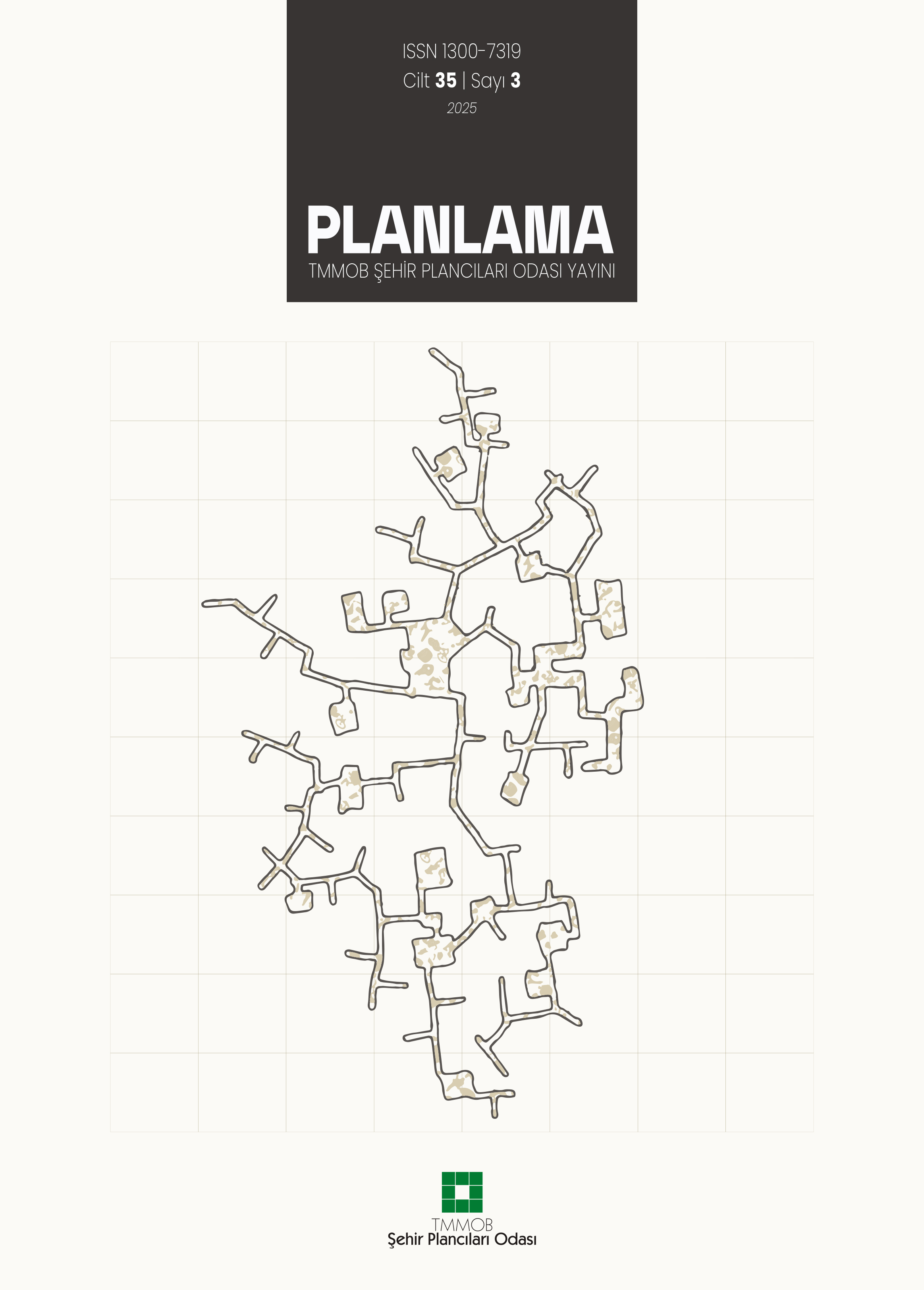Türkiye’de Akıllı Kent Olma Eğiliminin Az Gelişmişlik Bağlamında Değerlendirilmesi: Ampirik Bir Analiz
Suat Tüysüz1, Ahmet Yazar2, Müge Manga31Coğrafya Bölümü, Erzincan Binali Yıldırım Üniversitesi, Fen-Edebiyat Fakültesi, Erzincan, Türkiye2Siyaset Bilimi ve Kamu Yönetimi Bölümü, Erzincan Binali Yıldırım Üniversitesi İktisadi ve İdari Bilimler Fakültesi, Erzincan, Türkiye
3İktisat Bölümü, Erzincan Binali Yıldırım Üniversitesi İktisadi ve İdari Bilimler Fakültesi, Erzincan, Türkiye
Dünya nüfusunun yarıdan fazlası kentlerde yaşamaktadır. Bu du-rum kentler üzerinde ciddi bir baskı oluşturmaktadır. Bu baskının ortadan kaldırılması kentlerin sürdürülebilirliği açısından önem-li olduğu kadar kentsel yaşam kalitesinin artırılması açısından da önemlidir. Bu çerçevede akıllı kent modeli, hem kentlerin sürdü-rülebilirliği hem de kentsel yaşam kalitesinin artırılması açısından son yıllarda giderek artan bir biçimde kullanılmaya başlamıştır. Söz konusu model, teknolojinin kullanılması yoluyla bahsedilen sorun-ların üstesinden gelmeyi amaçlayan bir çerçeveye sahiptir. Öyle ki bu model, hem dünyada hem de Türkiye’de üst ölçekli politika belgelerinde de işlenmeye başlamıştır. Ancak akıllı kentin bileşen-lerini oluşturan beşeri ve fiziki unsurlar, mekânsal olarak farklı-lıklar arz etmektedir. Bu da akıllı kent modelinin her yerde aynı ölçüde etkin olamayacağına ilişkin bir soruna işaret etmektedir. Bu bağlamda bu çalışma, teknolojik altyapı, beşeri sermaye ve yöneti-şim yapısı gibi akıllı kentin en önemli bileşenleri olarak kabul edilen değişkenlere dayalı olarak Türkiye’de düzey 3 (il) bölgelerinin akıllı kent olma eğilimini ortaya koymayı amaçlamaktadır. Bu amacı ger-çekleştirebilmek için söz konusu değişkenlere kümeleme analizi uygulanmıştır. Analiz neticesinde Türkiye’de akıllı kent olma eğilimi açısından birbirinden farklılaşan beş farklı kümenin olduğu ortaya konulmuştur. Elde edilen bulgular, gelişmişlik düzeyinin farklılaşma-sıyla paralel olacak biçimde akıllı kent uygulamalarının her bölgede aynı ölçüde etkin ve verimli kullanılamayacağına işaret etmektedir.
Anahtar Kelimeler: Bilgi ve iletişim teknolojileri, Bölgesel farklılaşma, Az gelişmişlik, Akıllı kent.
Assessment of Tendency to Become a Smart City Among Turkish Cities in the Context of Underdevelopment: An Empirical Analysis
Suat Tüysüz1, Ahmet Yazar2, Müge Manga31Department of Geography, Erzincan Binali Yıldırım University, Faculty of Science And Letters, Erzincan, Türkiye2Department of Political Science and Public Administration, Erzincan Binali Yıldırım University Faculty of Economics and Administrative Sciences, Erzincan, Türkiye
3Department of Economics, Erzincan Binali Yıldırım University Faculty of Economics and Administrative Sciences, Erzincan, Türkiye
More than half of the world's population lives in cities, which creates serious pressure on cities. Eliminating this pressure is important for the sustainability of cities, as well as for im-proving the quality of urban life. In this context, the smart city model has recently been utilised to address urban sustainability challenges and enhance the quality of urban life. The model has a framework aimed at overcoming the mentioned issues through the use of technology. This model has begun to be included in upper-scale policy documents all around the world, along with Turkey. However, the human and physical entities that make up the components of the smart city differ spatially within the country, which points to the problem that the smart city model cannot be equally effective everywhere. Therefore, this study aims to demonstrate the trend of NUTS 3 regions in Turkey to become smart cities based on variables considered the most important components of a smart city, such as tech-nological infrastructure, human capital, and governance struc-ture. In order to achieve this goal, cluster analysis was applied to these variables. The analysis has revealed that there are five different clusters in Turkey that differ from each other in terms of the tendency to become smart cities. The findings indicate that smart city applications cannot be used equally effectively and efficiently in each region in parallel with the differentiation of the level of development.
Keywords: Information and communication technologies, Regional differentiation, Underdevelopment, Smart cities.
Makale Dili: İngilizce














